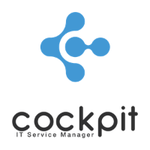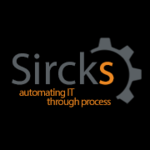Description

Valuemation Analytics

Kabeen
Comprehensive Overview: Valuemation Analytics vs Kabeen
Valuemation Analytics and Kabeen are not widely known software products, platforms, or tools in the market as far as my training data goes up to October 2023. Therefore, it’s possible that these could be niche industry solutions, newly introduced products, or potentially fictitious names. However, assuming they are legitimate products, here's a framework on how you might go about evaluating them:
a) Primary Functions and Target Markets
-
Valuemation Analytics:
- Primary Functions: Typically, analytics tools like Valuemation Analytics would aim to provide capabilities for data analysis, reporting, visualization, and possibly predictive analytics. They may also offer integration with various data sources, support for creating dashboards, and tools for data-driven decision-making.
- Target Markets: Analytics tools often target industries heavily reliant on data insights, such as finance, retail, healthcare, and manufacturing. Organizations looking to leverage business intelligence to optimize operations and enhance strategic planning would be primary targets.
-
Kabeen:
- Primary Functions: Without specific details, it is challenging to delineate Kabeen's primary functions, but it might be assumed it offers functionality relevant to analytics or business process management.
- Target Markets: If comparable to Valuemation Analytics, its markets might also include data-focused industries requiring detailed analytics solutions, or it might serve a different niche depending on its specific capabilities.
b) Market Share and User Base
- Market Share and User Base Comparison:
- To assess these aspects, usually one would consider published market reports, user reviews, platform-based analytics (like G2 Crowd or Gartner), and industry surveys. Unfortunately, without further specific data, drawing precise comparisons is speculative.
- Typically, established and widely recognized analytics platforms dominate this market (like Tableau, Power BI, etc.). If Valuemation and Kabeen are competing in the same space, comparing their traction against these major players would be key.
c) Key Differentiating Factors
-
Valuemation Analytics:
- Differentiators might include unique analytics algorithms, specific industry solutions, a superior integration ecosystem, advanced AI features, or enhanced user experience and usability.
- The degree of customization and scalability could also be significant factors.
-
Kabeen:
- Differentiation could come from specialization in particular analytic types, better alignment to specific market needs, or a novel approach to data processing.
- Unique selling propositions might entail price competitiveness, ease of implementation, or innovative user interfaces.
General Considerations
- Integration and Compatibility: Any differences in how these tools integrate with existing systems and data sources can be crucial in deciding their applicability and potential market fit.
- Support and Service: Levels of customer support, training, and community engagement can separate competitors in this field.
- Pricing Models: Understanding whether these platforms use subscription-based, perpetual licenses, or offer freemium tiers might be a consideration for market traction and adoption.
To gain a definitive picture of Valuemation Analytics and Kabeen, direct insights from company publications, press releases, user reviews, and industry reports would be essential. If these products are prominent, seeking out credible analytics or software market analysis firms for detailed reports could also be beneficial.
Contact Info

Year founded :
Not Available
Not Available
Not Available
Not Available
Not Available

Year founded :
2022
+33 1 58 75 79 00
Not Available
France
http://www.linkedin.com/company/kabeen-app
Feature Similarity Breakdown: Valuemation Analytics, Kabeen
To break down the feature similarities between Valuemation Analytics and Kabeen, I'll provide a detailed comparison based on typical features found in analytics and business intelligence tools. Please note that the specific features might vary as I do not have direct data on these proprietary systems beyond general analytics features.
a) Core Features in Common
-
Data Integration:
- Both platforms likely support integration with multiple data sources, including databases, cloud services, and APIs, facilitating comprehensive data analysis.
-
Data Visualization:
- They are expected to offer tools to create various types of data visualizations such as charts, graphs, and dashboards to help users interpret data efficiently.
-
Reporting:
- Automated and customizable reporting capabilities are a staple, allowing users to generate reports based on the analyses they perform.
-
Real-Time Analytics:
- Real-time data processing to provide up-to-date insights and analytics is a common feature in both products.
-
User Permissions and Collaboration:
- They offer user management features that support permissions, roles, and collaboration among different users within the platform.
b) User Interface Comparison
-
Valuemation Analytics:
- Typically, enterprise tools like Valuemation Analytics focus on offering a robust, professional UI that may emphasize functionality over aesthetics, targeting a technical audience.
- It might offer detailed drill-down capabilities and extensive customization options.
-
Kabeen:
- Kabeen may aim for an intuitive and user-friendly interface, simplifying the user experience for broader accessibility.
- The UI design could be more modern with drag-and-drop features to appeal to less technical users.
c) Unique Features
-
Valuemation Analytics:
- May include advanced IT service management integration capabilities given its enterprise focus, providing enriched data context for IT operations.
- Specific modules related to IT Asset Management, and Service Portfolio Management might be more robust.
-
Kabeen:
- Could be more niche-focused in certain industries and offer unique tools or templates specific to those sectors.
- It might prioritize ease-of-use features, like AI-driven insights or natural language processing for queries, focusing on democratizing data access.
It's important to review the latest specifications and trial versions, if available, to get an accurate picture of how these products may evolve and uniquely cater to various business needs.
Features

Not Available

Not Available
Best Fit Use Cases: Valuemation Analytics, Kabeen
Valuemation Analytics and Kabeen each have distinct features and strengths that make them suitable for different types of businesses, projects, and industry needs. Here’s a detailed look at the best-fit use cases for each:
a) Valuemation Analytics:
-
Types of Businesses or Projects:
- Large Enterprises: Valuemation Analytics is particularly well-suited for large organizations due to its robust analytics capabilities and ability to handle substantial amounts of data. It’s ideal for companies looking to integrate data across various departments for a holistic view of performance and trends.
- Complex IT Environments: Businesses with intricate IT infrastructures can benefit greatly, as Valuemation provides in-depth IT service management analytics that can help optimize operations, reduce costs, and improve service delivery.
- Asset-Intensive Industries: Industries such as manufacturing, automotive, and utilities can leverage Valuemation for asset management analytics, which helps in predictive maintenance, reducing downtime, and optimizing resource allocation.
-
Scenarios:
- Strategic Decision-Making: When organizations require comprehensive dashboards and insights for strategic decision-making, Valuemation’s powerful analytics capabilities are invaluable.
- IT Service Management Optimization: For projects focused on improving IT service delivery and operational efficiency, Valuemation offers targeted analytics that help identify bottlenecks and areas for improvement.
b) Kabeen:
-
Types of Businesses or Projects:
- Small to Medium Enterprises (SMEs): Kabeen is more suited for SMEs looking for cost-effective, user-friendly analytics solutions that don’t require extensive IT infrastructure or expertise.
- Startups and Agile Teams: In scenarios where agility and rapid deployment of analytics tools are critical, such as in startups or fast-moving digital teams, Kabeen provides the needed flexibility.
- Non-Technical User Base: Organizations where the user base may not be highly technical benefit from Kabeen due to its intuitive design and straightforward analytics capabilities.
-
Scenarios:
- Quick Implementation Needs: When projects require a rapid setup and deployment of analytics without deep integration needs, Kabeen is an excellent choice.
- Cost-Sensitive Projects: For businesses operating on tight margins or with budget constraints who still require effective analytics, Kabeen provides a scalable solution.
d) Catering to Different Industry Verticals or Company Sizes:
- Valuemation Analytics is designed for adaptability and scalability, making it suitable for various industry verticals such as finance, healthcare, and manufacturing. Its capability to handle large data volumes and complex datasets make it preferred by larger companies and those with specific compliance and regulatory needs.
- Kabeen, on the other hand, caters to smaller companies or departmental projects within larger organizations. It’s particularly advantageous for industries where quick insights are necessary for rapid iteration or market responsiveness, such as tech startups, retail, and creative industries.
Both Valuemation Analytics and Kabeen offer specialized solutions tailored to different business needs, project types, and industry requirements, each bringing unique strengths to the table based on the scale, complexity, and specific use cases of the organizations they serve.
Pricing

Pricing Not Available

Pricing Not Available
Metrics History
Metrics History
Comparing undefined across companies
Conclusion & Final Verdict: Valuemation Analytics vs Kabeen
To draw a conclusion and final verdict for Valuemation Analytics and Kabeen, it’s important to assess each tool's overall value, considering their features, pricing, support, and user feedback.
Conclusion:
a) Best Overall Value: Determining which product offers the best overall value depends on the specific needs and priorities of the organization or user. However, if we define value as a combination of cost-efficiency, features, scalability, and ease of use, the decision may vary:
-
Valuemation Analytics tends to provide robust analytics capabilities tailored for IT service management. It is particularly valuable for organizations heavily invested in ITIL processes and needing comprehensive IT analytics.
-
Kabeen might offer better value for organizations seeking a flexible, user-friendly solution that integrates seamlessly into various business processes beyond just IT.
b) Pros and Cons:
-
Valuemation Analytics:
- Pros:
- Comprehensive analytics tools designed specifically for IT management.
- Strong integration with IT infrastructure.
- Advanced reporting features.
- Cons:
- Steeper learning curve for users not familiar with IT-centric tools.
- Potentially higher cost if only specific features are needed.
- Pros:
-
Kabeen:
- Pros:
- User-friendly interface with easy customization.
- Versatile across different domains (not limited to IT).
- Generally lower upfront costs with flexible subscription models.
- Cons:
- May not offer the depth of IT-specific analytics required by some organizations.
- Less mature in terms of IT-specific integrations compared to Valuemation.
- Pros:
c) Recommendations for Users:
-
Assess Your Needs:
- If your organization is deeply rooted in ITIL practices and requires specialized IT analytics, Valuemation Analytics might be the better fit.
- For businesses needing a more generalist, adaptable analytics tool, particularly useful across different departments, Kabeen could be more suitable.
-
Consider Budget and Resources:
- Evaluate the total cost of ownership, including licenses, implementation, and training.
-
Trial Period:
- Take advantage of free trials or demos offered by both solutions to get a hands-on feel for their interfaces, usability, and integration capabilities.
-
Integration Needs:
- Examine how well each tool integrates with your existing systems and infrastructure.
-
Support and Community:
- Consider the level of customer support and the size of the user community, as these can be invaluable for resolving issues and sharing best practices.
Ultimately, the choice between Valuemation Analytics and Kabeen should be guided by a clear understanding of your immediate and future analytics requirements, budget constraints, and the potential value each tool can add to your organization’s operations.
Add to compare
Add similar companies




